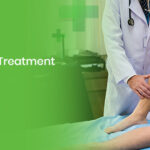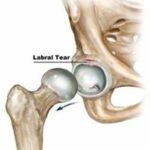Ever wondered why your muscles suddenly tighten up, especially after a workout or while you’re asleep? These painful, involuntary contractions are called muscle cramps, and they often strike without warning. Whether it’s an intense exercise session, dehydration, or an imbalance of minerals like magnesium or potassium, cramps are your body’s way of signaling fatigue or electrolyte loss.
In simple terms, muscle cramps are sudden, uncontrollable spasms that make the affected muscle hard and painful for a few seconds to minutes. They can occur in the calves, hamstrings, or even at night when you’re resting. The good news is that with proper hydration, stretching, and physiotherapy care, most cramps can be relieved and prevented easily.
Types of Muscle Cramps
At Pain Free Physiotherapy & Chiropractic Clinic, muscle cramps can be defined as involuntary and spontaneous electrical activity in a majority of the muscle fibers of a muscle. They can be localized to a single muscle or may affect several muscles or muscle groups, developing into a sustained contraction (muscle spasm) that causes significant pain.
- Exercise-Associated Muscle Cramps (EAMC)
- Nocturnal Cramps
As their names suggest, EAMC occurs during/post exercise and nocturnal cramps occur at nighttime. If the contraction/ cramp is severe it can cause a state of functional disability and in the case of nocturnal type, it can cause sleep disturbance.
Causes of Muscle Cramps:
Both EAMC and nocturnal cramps appear similar in presentation but have different causes.
The exact cause of a cramp is not well defined but there are a number of hypotheses for both EAMC and nocturnal cramps.
Possible causes of EAMC –
- Fatigue as a result of overuse reduces fiber lengthening between contractions.
- Altered neuromuscular coordination.
- Dehydration and electrolyte imbalance are secondary to extensive sweating. It can be the primary cause or contributing factor.
- Incomplete recovery from the previous cramp.
- If muscle length is shortened, the muscle is predisposed to cramping. This can be exacerbated by fatigue in the muscle.
- Electrolyte loss as a result of excessive sweating during exercise can cause EAMC.
- Pregnancy.
Possible causes of Nocturnal Cramps:
- Dehydration from chronic insufficient fluid intake or excessive drinking behavior – drinking too many glasses of wine!
- Electrolyte imbalances (low magnesium, calcium or potassium, etc.).
- Poor blood circulation.
- Pregnancy.
Other Causes of Muscle Cramps
The other suspected cause of cramps could be
- Peripheral vascular disease.
- Uremia – raised levels of urea and other nitrogenous waste in the blood.
- Diabetes.
- Thyroid dysfunction.
- Alpha motor neuron disorders.
Medications that Cause Cramps
Some medicine can also result in cramp-like situations. Few such known medicines are diuretics, calcium channel blockers – such as nifedipine, long-acting ß2-agonists, steroids, lithium, statins, cimetidine, etc.
NOTE: if anyone is on any such medication and having symptoms of cramp, please consult your doctor.
Treatment of Muscle Cramps
The first and foremost priority is to determine the root cause of cramps. Depending on the findings, the Physiotherapy treatment may involve:
- Lengthening of hypertonic muscles.
- Restoring complete joint range of motion.
- Strengthening the weak muscles.
- Lifestyle modifications:
- Adequate fluid intake.
- Reducing coffee/alcohol intake.
- Maintaining Vitamin/electrolyte balance.
- Modifying current exercise regimes.
One may need to seek the opinion of a physician and dietician (for dietary changes) at times for cramping problems.
Considering the Causes of Cramps into account, Steps can be taken to Prevent the Onset of a Cramp:
- Drink plenty of water- 3-4 Lts a day should be sufficient,
- Decreased coffee and/or alcohol consumption.
- Stretch regularly – particularly the large muscles like calves, hamstrings, gluteals, and quadriceps.
- Maintain proper electrolyte balance; consult a physician to understand this better.
- Warm-up thoroughly and stay hydrated before and throughout the exercise – water or sports drink is useful in this instance.
What can be done for Instant/ Temporary Relief?
- With a sudden cramp, the quickest way to relieve it is to stretch it out – i.e. if there is a cramp in calf muscle, stretch the calf by pulling the toes and foot towards the knee.
- Drinking a highly salty drink can relieve a cramp.
- Move out of the position that causes the cramp.
If cramps are a regular occurrence, see a physiotherapist for a stretching routine that will ease the cramp when it comes but work on preventing it from coming again and again.





